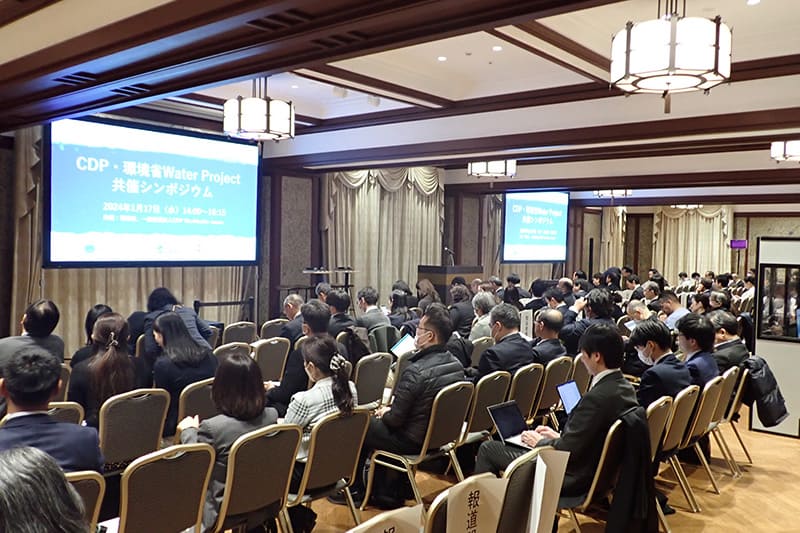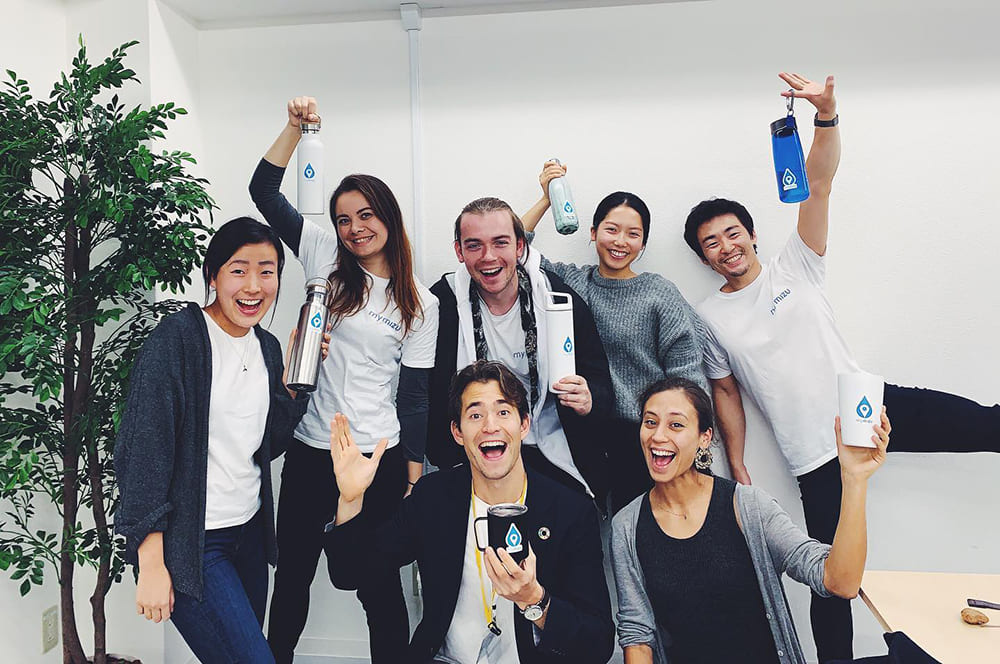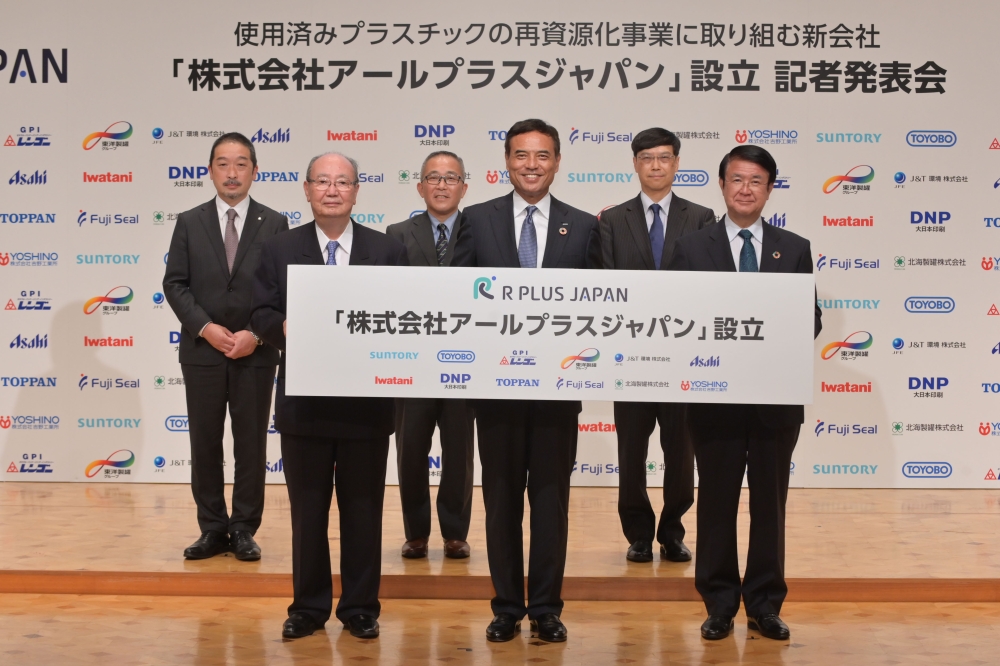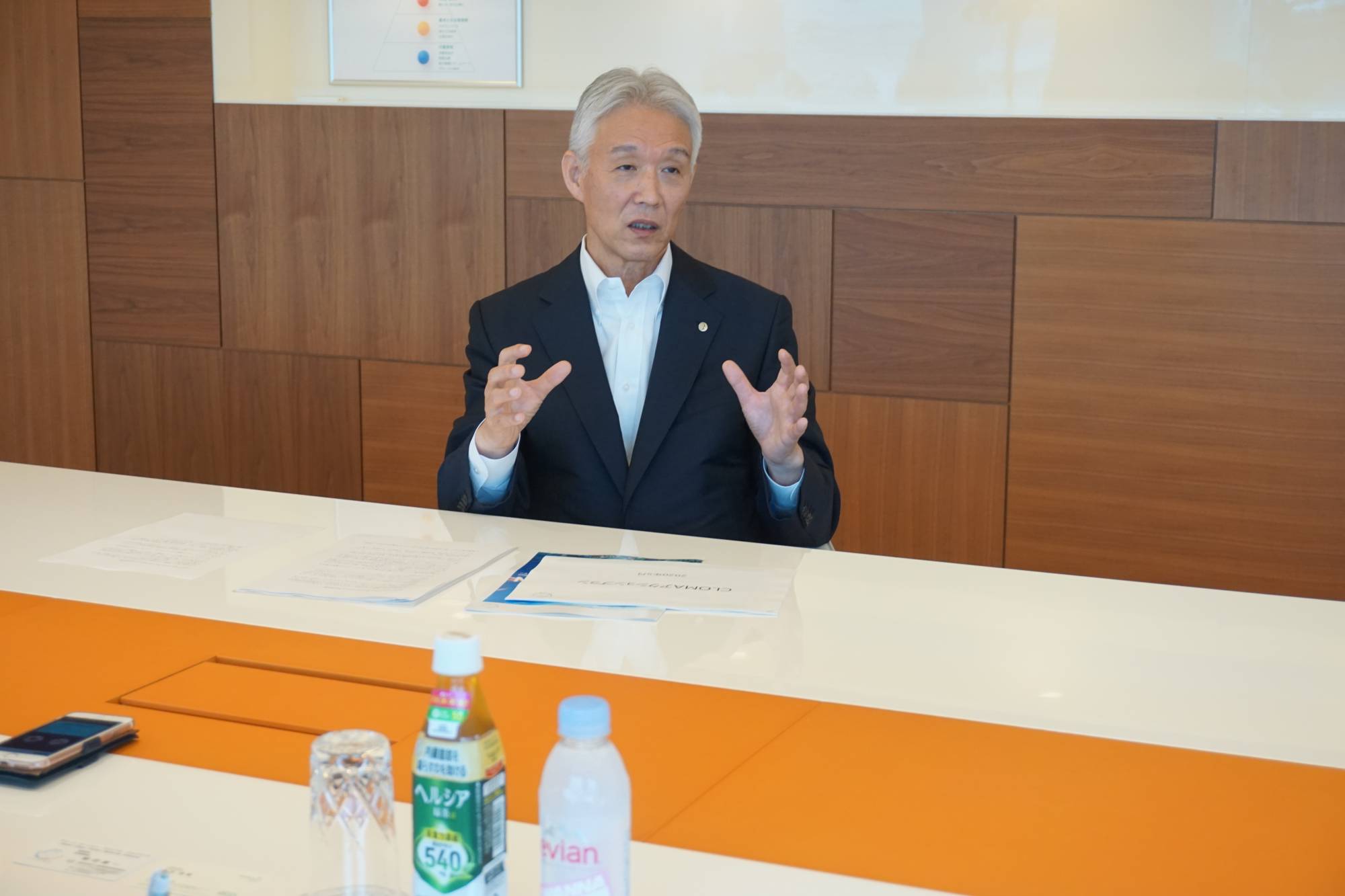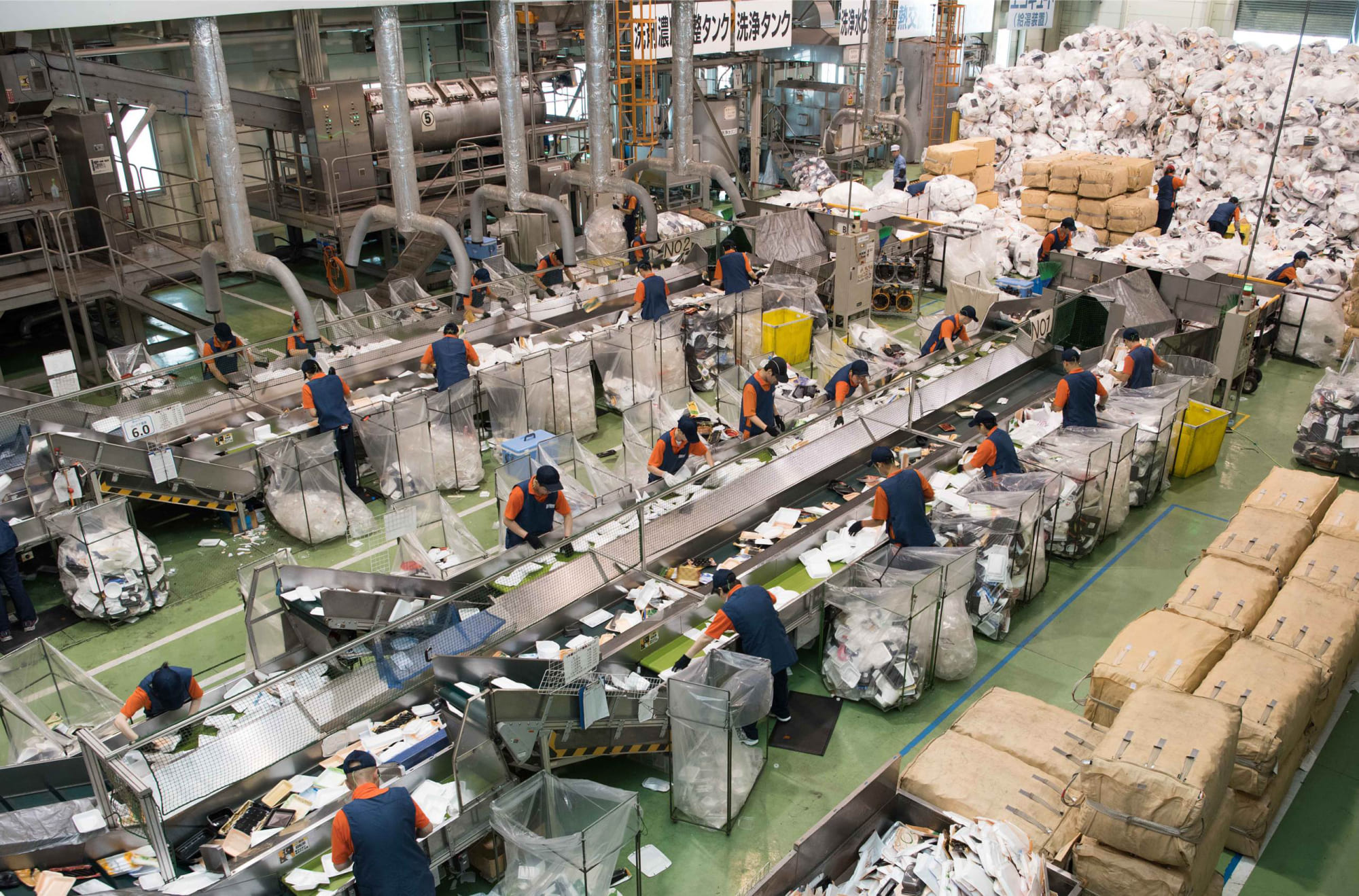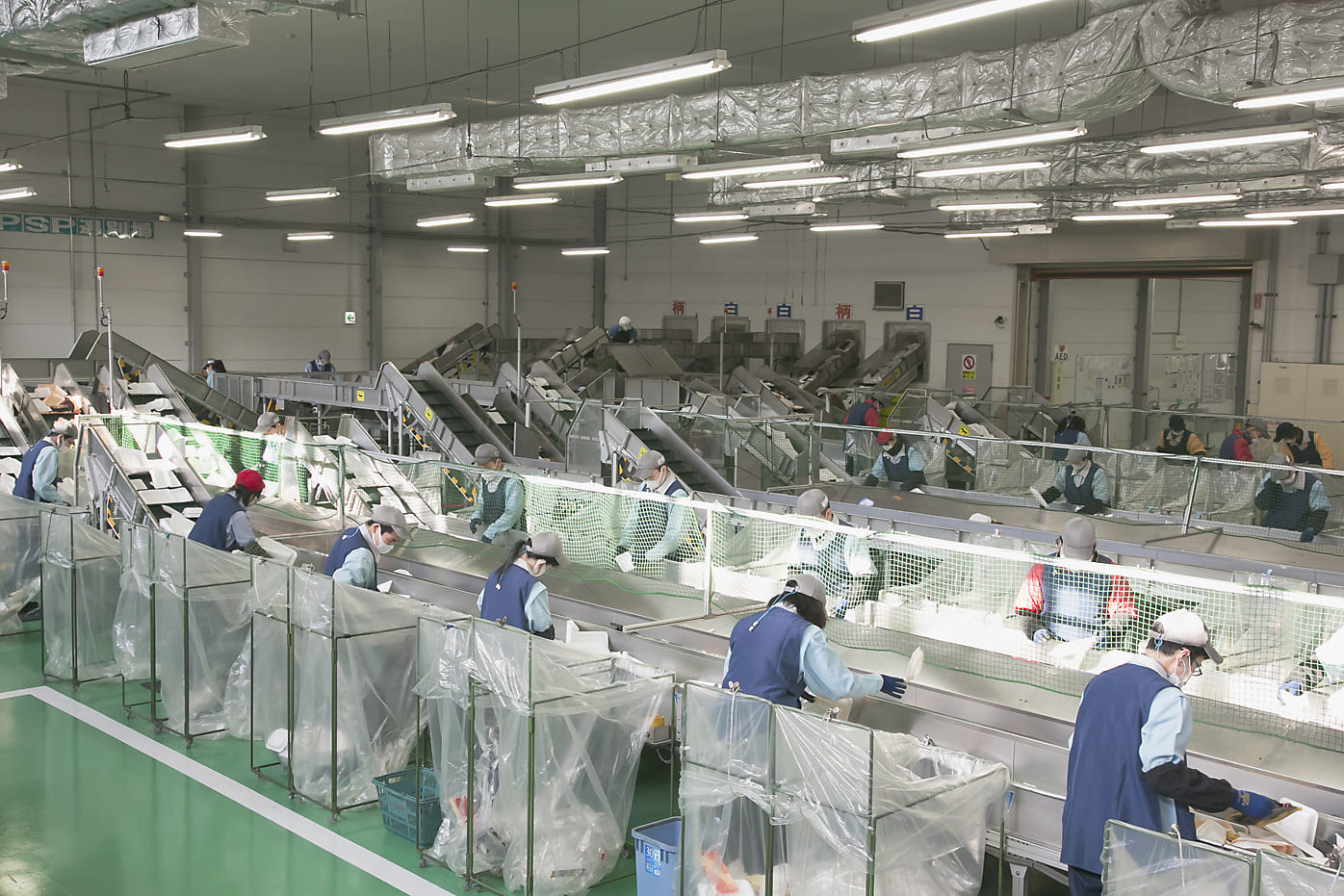June 30, 2019
Innovative recycling contributes to reduction of plastic waste
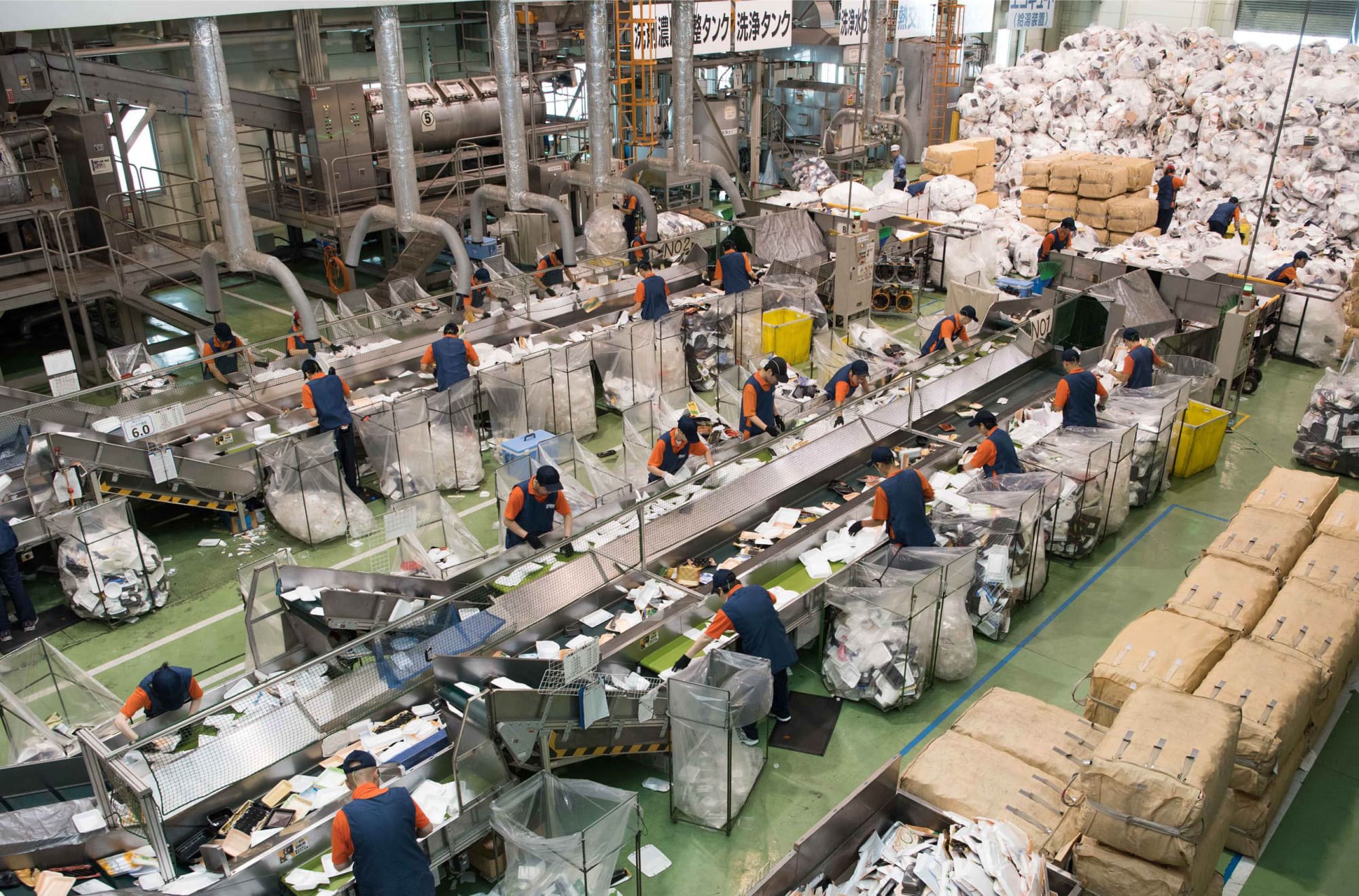
Photographs of plastic debris floating on the world’s oceans are indeed shocking and help raise people’s awareness of plastic pollution. However, to describe plastics as bad for the environment is too simplistic.
It seems that no other material is as hygienic, light and cost-effective as polystyrene foam trays to pack food. Other plastic products also have characteristics that make them suitable for certain purposes.
With comprehensive collection systems for recycling in place in almost every corner of Japan, plastic products do not become garbage unless consumers throw them on the street or into rivers. The real problem lies in the way this recyclable material is dealt with after single use across the globe.
Japan could be a model for the rest of the world if companies like FP Corp. (FPCO) continue their endeavors to strengthen their recycling technology with the understanding and proactive participation of the general public.
FPCO, headquartered in both Fukuyama, Hiroshima Prefecture, and Tokyo, is a leading manufacturer of plastic food tray containers.
Since its establishment in 1962, the company has never stopped evolving to meet consumer needs, as well as society’s requirements in terms of addressing environmental challenges. For example, the firm stopped using freon gas in 1987 ahead of the first national law to restrict the use of freon, implemented in 1988.
Polystyrene foam trays are made of 5 to 10 percent oil-based polystyrene resin and 90 to 95 percent air. This is why the trays are so light. Technology developed by FPCO to increase the expansion rate of the resin has made the trays even lighter. Lighter products mean less energy is needed to transport them.
“Plastics are cheap and that is why they are thrown away. They are light and because of this, plastic waste can travel long distances. Plastics are strong and that is why they do not degrade,” said Eiji Togashi, general manager of FPCO’s Environmental Management Division.
Fortunately, it has already become a common practice in Japan to separate plastics from other kinds of trash, but Togashi noted the company must strive further to collect more used and washed plastic food trays as part of their “Tray to Tray” circular recycling initiative.
“Even now, not everyone is aware of the collection boxes installed outside supermarkets or where the collected trays go,” he said.
Recycled polystyrene foam trays made by FPCO are delivered to supermarkets where they are used as food containers. Consumers wash, dry and return the trays to the collection boxes placed at supermarkets. The trays are collected by delivery trucks on their way back to the company’s regional centers where the white and colored trays are separated. They then go through several cleaning processes before being crushed and melted into pellets the size of rice grains that then become the direct ingredient for recycled Eco Trays.
Eco Trays have made it possible to reduce carbon dioxide emissions by 30 percent compared to such trays made only of new materials because of the reduced use of oil as a raw material, according to the company.
FPCO also recycles used polyethylene terephthalate (PET) bottles to make recycled transparent food trays named Eco APET. Collected bottles are sorted and cleaned, and then crushed into flakes, which are used to make very thin sheets. These sheets are sandwiched between two PET sheets made of new materials for added sanitation to be used as food containers.
“In municipalities where there are designated garbage bags that consumers need to purchase in order to put their garbage out for collection, the collection rate of plastic trays at supermarkets or other storefronts is much higher than other municipalities where there are no regulations on garbage bags,” Togashi said, stressing the importance of the further collaboration with municipal governments.
“It may only be that consumers do not want to spend extra money on garbage bags when the trays can be collected for free if they bring them to the collection boxes, but we hope that they start to take interest in what will become of their used trays after collection,” he noted.
In Tokyo’s Katsushika Ward, the municipal government is involved in the collection of plastic food trays.
“They are collected on a certain day of the week, separately from other plastic waste, and sorted by elderly people employed by the municipality,” Togashi explained.
He also mentioned that the district committee members who take care of each district’s waste station in the ward visit the FPCO recycling plant each year to learn how the trays they collect are recycled back into “new” trays.
“Trays become trays again. It’s the simplest recycling system in terms of traceability. The understanding of this perfect cycle greatly enhances people’s awareness and support,” said Toshihiko Tsukuda, general manager of the Management Planning Division.
As part of its effort to deepen understanding and promote cooperation among consumers, FPCO has been hosting study tours for school children for over 30 years.
“Generations have changed during these three decades. A university student who was interviewed by our company said that he visited our plant on a school excursion when he was young,” Togashi said with a smile. The number of visitors to FPCO plants is about 20,000 annually, according to the company.
“We need to continue efforts to enlighten and communicate with the general public because our recycling technology cannot function without the supply of used materials collected from consumers,” he noted.
To promote the collection of used food trays, the company made posters last year featuring the image of TV celebrity and film critic LiLiCo. LiLiCo is originally from Sweden, one of the most advanced countries in terms of environmental efforts including recycling. Upon creating the posters, she also visited one of FPCO’s recycling plants to learn about the recycling processes. The posters were put up at about 6,700 storefronts as of May this year.
“Our clients, supermarkets, convenience stores and the like, appreciate our promotional activities as well as our recycling technology because they also face increasing pressure from society regarding their responsibilities in addressing the environmental issues,” said Yuto Takashima, FPCO investor and public relations chief manager of the Management Planning Division.
Togashi added, “The number of stores and retail companies that are willing to opt for environmentally friendly packing materials is increasing.” FPCO hopes that more consumers will also choose to recycle instead of dispose.
Additionally, in a bid to reach out more to the general public and present their achievements to global society at the same time, FPCO participated in the Group of 20 Innovation Exhibition for Earth, Society and the Future, at the request of the government, that was held concurrently with the G20 ministerial meeting on energy transitions and global environment for sustainable growth on June 15 and 16 in Karuizawa, Nagano Prefecture.
Hosted by the Ministry of Economy, Trade and Industry and the Ministry of the Environment, the exhibition, which began on June 14, took place in the Karuizawa Prince Shopping Plaza Carpark, which is within walking distance of the ministerial meeting venue.
Around 3,800 people — including the delegates from participating countries, Japanese government officials, media and locals — visited the exhibition venue, including the company’s booth to learn about its recycling technology.
“What we are doing is not something that any country can start doing overnight because circular recycling requires an extensive collection system to be functioning in the first place,” Togashi said. “But we do hope that we can shed light on how we can make better use of plastics.”

